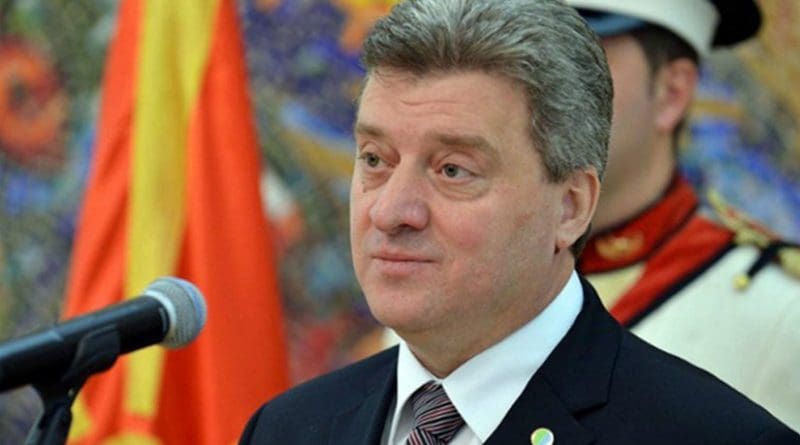Macedonia: Opposition Fears President Ivanov May Withhold Mandate
By Sinisa Jakov Marusic
Macedonian legal experts and political observers say that constitutionally there is no dilemma that President Ivanov should now give the opposition Social Democrats, SDSM – who came second in the December 11 elections – the chance to try to form government.
“Having this in mind, as well as the constitution and past practices in our country, the mandate should now be handed to the party that came second [the SDSM],” Macedonia’s former judge in Strasbourg, Margarita Caca Nikolovska, said.
However, some suspect that President Ivanov may try to give the mandate, not to the SDSM leader Zoran Zaev, but to someone else from the ruling VMRO DPMNE party, after its leader, Nikola Gruevski, missed Sunday’s deadline to assemble a majority.
After failing to secure parliamentary support from its former coalition partner, the Democratic Union for Integration, DUI, VMRO DPMNE on Sunday night said that fresh elections were the best option to end the stalemate.
In the December 11 elections, VMRO DPMNE won 51 of the 120 seats in parliament while the opposition SDSM won 49.
This means that support from the DUI and its 10 MPs, as well as from the other ethnic Albanian parties, which jointly have 10 seats, is crucial to the formation of a parliamentary majority of 61 seats.
According to the constitution, article 90, the President “is obliged to entrust the mandate for a new government to the party candidate or to [a coalition of] parties that have a majority in parliament” within ten days of the constitution of the new parliament.
The constitution does not state what should happen if the first attempt fails, as it did on Sunday, which opens the way to different interpretations.
While most legal experts agree that in any democracy the mandate should go to the second strongest party, some government supporters insist the President does not have to extend the mandate to the opposition, and can offer it once again to the ruling party or withhold it, calling another snap election.
Saso Ordanoski, a political analyst from Civil-Centre for Freedom, an NGO, said he suspected that despite the DUI’s apparent reluctance to back Gruevski’s new government, the two long-term partners may have a hidden agenda, which avoids giving the mandate to the opposition.
“I think the next phase will be to avoid entrusting the SDSM with the mandate … so the process of forming the next government stays with VMRO DPMNE, or we go for fresh elections,” he said.
The only way for the opposition to foil this supposed plan, Ordanovski said, would be to take proactive steps and secure enough MPs to prove that it can command a majority, “because that is a process that can’t be stopped, even by the head of state”.
On Monday, Zaev urged President Ivanov not to waste time and to entrust him with the mandate, adding that he was convinced he can succeed in forming a government. “All else would mean breaking the constitution,” he said.
Asked what would happen if he does not get the mandate, he hinted at possible protests.
“The citizens have got wise, they have seen everything. Everyone who tried in the past to break the constitution or make illegal steps was confronted with a counter-reaction that restored the normal processes,” Zaev said.
The December 11 elections followed a prolonged political crisis that revolves around opposition claims that as Prime Minister, Gruevski was responsible for large-scale illegal wiretapping and other misdeeds that can be heard on covertly recorded tapes released by the SDSM in 2015. Gruevski denies the allegations.

